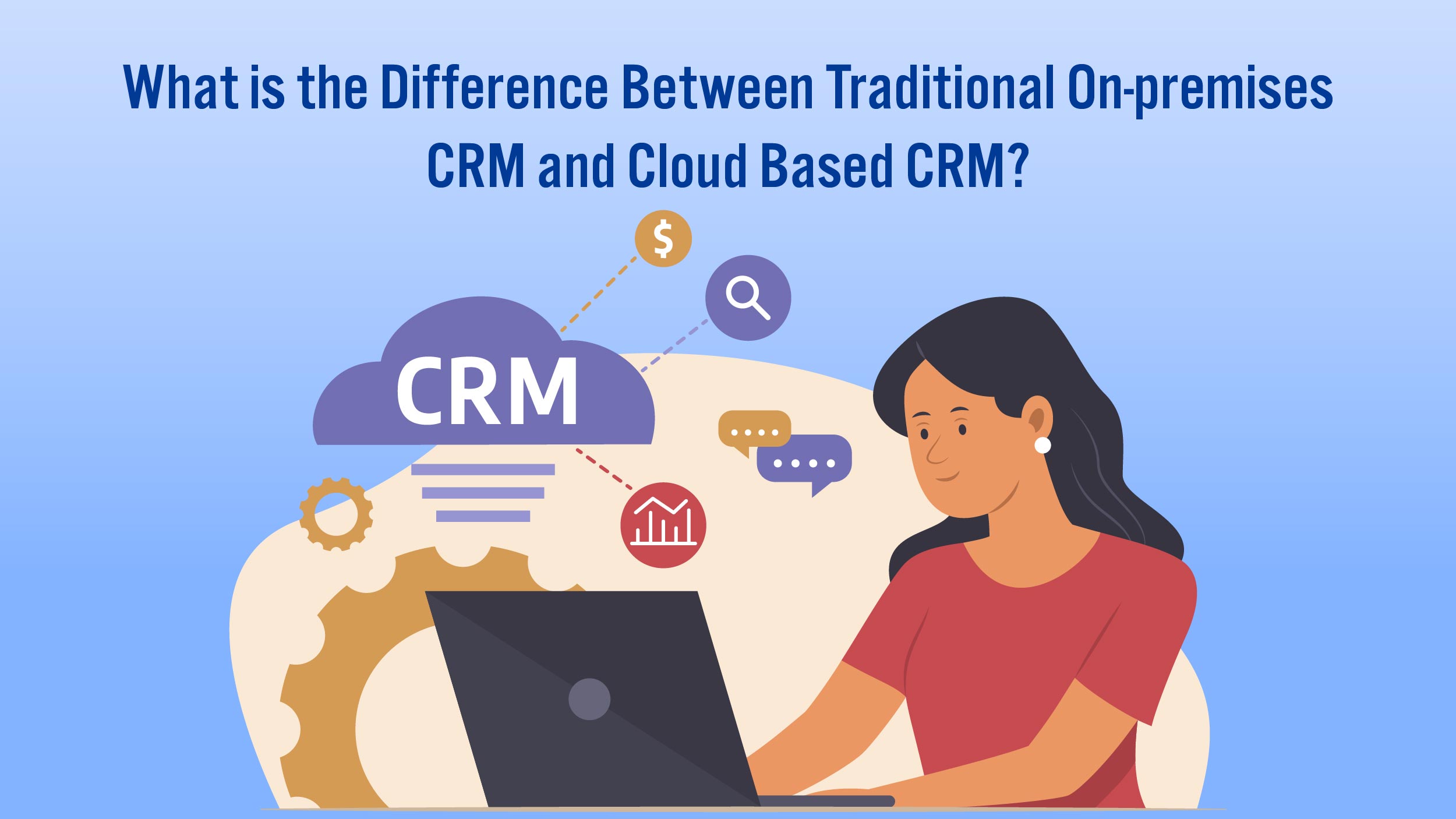Ever wondered how some companies seem to effortlessly nurture those golden customer relationships? Enter cloud based CRM software, the secret sauce behind many success stories in today’s digital landscape. With remote work skyrocketing, businesses are ditching the traditional on-premise setup for the freedom and flexibility of cloud solutions.
In this insightful guide, we delve into the burgeoning popularity of cloud-based CRM software among businesses of all sizes and industries. Additionally, we explore the top providers spearheading innovation in this space, empowering enterprises to streamline operations and enhance customer engagement like never before.
What is Cloud Based CRM?
Cloud-based customer relationship management (CRM) refers to software used for managing customer relationships that is hosted on the servers of the CRM provider and accessed by customers through the Internet. It is also commonly known as software as a service (SaaS). Contrary to on-premise/installed software, which incurs higher initial expenses and requires specific personnel, cloud-based CRM offers a more cost-effective and accessible solution.
What is the Difference Between Traditional On-premises CRM and Cloud Based CRM?

In contrast, a CRM that is hosted on the cloud signifies that the provider takes care of all the necessary infrastructure for hosting and running the system. The organization can access the CRM by using a web-based application or dashboard connected to the internet. With this setup, the organization is alleviated from the initial expenses of building and hosting the entire system, as well as the responsibilities of updates, security management, and maintenance.
How Does Cloud Based CRM Work?
A cloud-based CRM system eliminates the need for businesses to manage their own software infrastructure as the software provider assumes ownership and maintenance responsibilities. This allows businesses to access and operate the CRM application on their computers via an internet connection.
The responsibility for managing and safeguarding a company’s data lies with the CRM provider, who stores it securely in their own location. This eliminates the need for businesses to invest heavily upfront in building the necessary infrastructure for data storage and security.
On the other hand, when using on-premise/installed software, the company is responsible for owning and managing the servers, networks, security, and hardware required for installing and operating the program. The upfront expenses associated with hosting and managing such large amounts of data can be substantial. Additionally, it typically necessitates hiring a dedicated IT professional to ensure the software is properly maintained in the data center.
Also Read: Sales Collateral: The Definitive Guide for 2024
5 Best Cloud Based CRM Software for 2024
1. Salesforce
Salesforce CRM streamlines customer data and interactions, facilitating efficient lead follow-up to drive business expansion. With features like Feed First and AppExchange, you can optimize productivity and customize your platform with additional tools. Real-time insights and collaboration tools empower you to track deals, set goals, and nurture healthy team competition.
Compatible with Android and iOS, Salesforce enables on-the-go access and adaptive forecasting, while seamless integration with major CRM and accounting solutions ensures smooth operations. Experience enhanced efficiency and flexibility without being tethered to the office.
2. HubSpot CRM
HubSpot CRM stands out as a robust automation system, perfect for businesses exploring CRM advantages or seeking to maximize their current systems. It accelerates deal closures, streamlines customer documentation, and offers seamless integration into existing workflows. With powerful data enrichment features, it simplifies lead imports from emails with a single click. Designed for simplicity, it efficiently manages and expands your sales pipeline, saving time for your team.
HubSpot CRM seamlessly integrates into diverse software ecosystems, including Google Chrome, Google Dynamics, Snap Engage, and Dropbox, without requiring process changes. While a free version is available, the $50 per month basic version offers enhanced features, making it an ideal choice for businesses new to CRM or looking to optimize existing systems.
3. NetSuite CRM
NetSuite CRM offers businesses a comprehensive, real-time view of their customers, spanning every interaction from lead to post-sales support. With robust knowledge management features, it simplifies content organization for both customers and employees. Integrated contact management ensures seamless communication tracking and task management, while advanced marketing automation and sales force capabilities enhance customer engagement. Compatible with various platforms including G Suite and MailChimp, NetSuite CRM provides tailored solutions at competitive prices.
4. Zoho CRM
Zoho CRM excels in lead and contact management, sales pipeline tracking, and purchase control. Its intuitive interface and customizable dashboard streamline workflows effortlessly. This app automates tasks, monitors sales, and engages customers across platforms, catering to businesses of all sizes. Manage customer accounts, track purchase history for upsell opportunities, and generate custom reports and dashboards.
Integrated with social media platforms like Twitter and Facebook, Zoho CRM identifies and categorizes leads and contacts for seamless outreach. Its mobile platform ensures access to cloud based CRM on the go, with real-time updates and deal closures. Extend its capabilities further by integrating with popular apps like Microsoft Outlook, MailChimp, QuickBooks, and cloud-based connectors.
5. Pipedrive
Pipedrive offers a focused approach to sales activities and deals, ideal for both sales professionals and business owners. With its intuitive interface, it provides a clear view of your sales pipeline and methodology, helping you prioritize the most promising deals. Trusted by tens of thousands worldwide, Pipedrive ensures data security with reliable hosting and nightly backups.
The platform simplifies sales management with customizable workflows and seamless integration with over 300 apps. It streamlines lead management through customizable web forms and easy importation of leads from various CRM systems. Moreover, Pipedrive’s flexibility allows for tailored sales pipeline stages and modular customization, along with modern communication features like group chat and mobile accessibility. With real-time backups, your sales pipeline is always secure and accessible on the go.
Wrapping it Up
The rise of cloud based CRM systems marks a pivotal shift in how businesses manage customer relationships in today’s digital age. The unparalleled flexibility, accessibility, and scalability offered by cloud based CRM software empower organizations of all sizes and industries to streamline their operations, enhance customer engagement, and drive sustainable growth. As businesses continue to adapt to evolving market demands and remote work environments, the adoption of cloud based CRM systems emerges as not just a trend, but a necessity for staying competitive in a dynamic landscape. Embracing the advantages of cloud based CRM solutions equips businesses with the tools they need to thrive in a rapidly changing world, enabling them to effectively nurture customer relationships and achieve long-term success.

